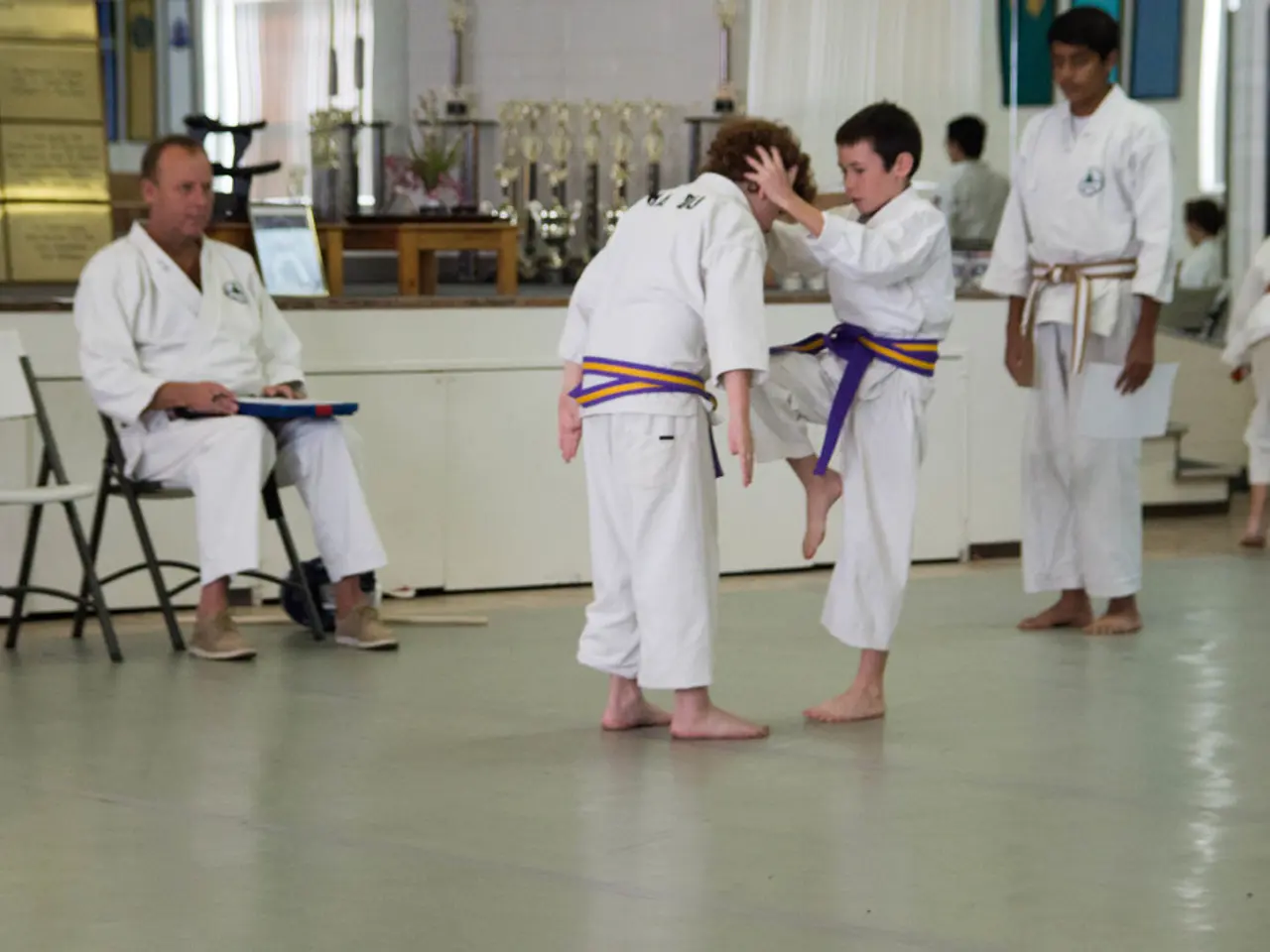Thirteen Mental Workouts for Maintaining a Sharp Mind
Improving mental performance and cognitive function is within reach for everyone, as research continues to uncover effective strategies. Here are 13 science-backed exercises and activities that can help sharpen your mind and enhance cognitive performance.
Mind-Body Exercises
Activities like Tai Chi and Baduanjin are proven to be beneficial for enhancing working memory and task-switching ability. These mind-body exercises, when practiced at a moderate frequency and duration, can significantly improve cognitive function [1].
Aerobic Exercise
Regular aerobic activities, such as walking or jogging, improve cognitive function by enhancing neuroplasticity and neurogenesis [3]. Incorporating these exercises into your daily routine can contribute to a healthier brain.
Resistance Training
Resistance training is beneficial for improving inhibitory control, making it a valuable addition to your fitness regimen. Combining resistance training with mind-body exercises can lead to broader cognitive benefits [1].
Multicomponent Interventions
Mixing different types of exercises can result in significant improvements in overall cognitive function [1]. For example, pairing aerobic exercise with resistance training and mind-body exercises can provide a comprehensive workout for your brain.
Card Games
Engaging in card games stimulates the brain and provides social interaction, which is beneficial for cognitive health [2]. Games like bridge and poker require multiple cognitive skills, including strategic thinking, memory retention, pattern recognition, and social cognition.
Mental Stimulation
Daily activities that challenge the mind, such as reading, crosswords, or language apps, promote neural plasticity [4]. Embrace these activities to keep your mind active and adaptable.
Learn a New Skill or Hobby
Acquiring new skills keeps the brain active and adaptable. Examples include woodworking or learning a new language [4]. The process of learning something completely unfamiliar can create dramatic changes in brain structure and function, provided it uses different neural pathways than established skills.
Social Activities
Regular social interaction, such as participating in group exercises or playing team sports, can support cognitive health by reducing stress and enhancing mental stimulation [2].
Dancing
Moderate physical activities like dancing are associated with slower cognitive decline [2]. Dancing uniquely combines physical exercise, memory challenges, spatial awareness, social connection, and music processing.
Gardening
Moderate physical activities, including gardening, contribute to better cognitive health by encouraging regular movement [2].
Engage in Creative Activities
Activities like drawing, painting, or playing a musical instrument challenge the brain and promote cognitive flexibility.
Bushwalking or Hiking
Outdoor activities that combine physical exercise with mental stimulation can enhance cognitive function and overall well-being.
Yard Work
Engaging in yard work and other light physical activities can improve cognitive health by promoting regular movement and mental engagement [3].
Remember, consistency trumps intensity when it comes to brain health. Spending just 10-15 minutes daily on three brain exercises chosen for enjoyment delivers far greater benefits than an hour-long session once weekly.
Learning something completely unfamiliar creates dramatic changes in brain structure and function, provided it uses different neural pathways than established skills. Regularly completing 1,000+ piece puzzles significantly improves visuospatial reasoning, working memory, and attention to detail. Active music engagement, such as analyzing its structure, identifying instruments, or mentally tracking melodic patterns, shows increased connectivity between the brain's auditory processing centers and its executive function networks.
By implementing these science-backed exercises and activities into your daily routine, you can improve your mental sharpness and cognitive performance.
Smartphones, as devices offering various mental-health and health-and-wellness apps, can serve as tools to further reinforce cognitive training, such as memory enhancement (Gross, 2021). By incorporating such apps into daily routines, technology can play a supportive role in augmenting brain health and cognitive function.
When engaged in activities like card games, smartphones can provide a platform for social interactions, which are essential for maintaining mental health and overall cognitive well-being (Patterson, 2019). Utilizing mobile applications designed for social play can help individuals reap benefits concurrently from technology and their interactive nature.




